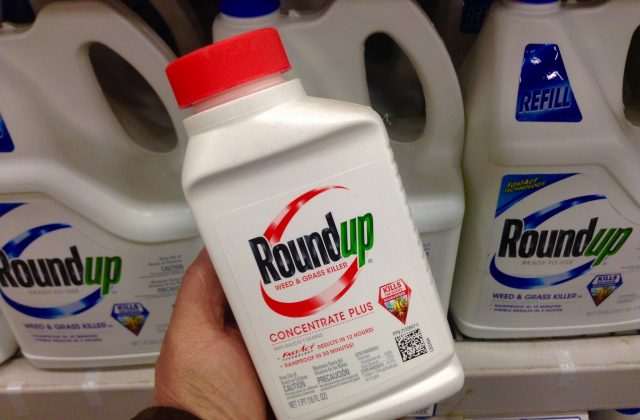After a new study published by the University of Washington recently showed that the herbicide “glyphosate” raises cancer risk by 41%, numerous people are suing Bayer for selling them weedkiller filled with the chemical. In 2017, Monsanto, recently purchased by Bayer, was battling nearly 800 lawsuits. Now, over 11,000 people have come forward claiming that their use of Bayer’s weedkillers Roundup and Ranger Pro have caused detrimental health concerns.
 The most recent study on glyphosate was published in Mutation Research. The team looked over all current available research on the herbicide, and then conducted their own, coming to the conclusion that results “consistently” showed a connection between the chemical and an immune system cancer called non-Hodgkin lymphoma (NHL). The study’s senior author is Lianne Sheppard, professor of biostatistics and environmental and occupational health sciences. She and her team discovered that individuals regularly exposed to glyphosate have as much as a 41% increased risk of developing NHL.
The most recent study on glyphosate was published in Mutation Research. The team looked over all current available research on the herbicide, and then conducted their own, coming to the conclusion that results “consistently” showed a connection between the chemical and an immune system cancer called non-Hodgkin lymphoma (NHL). The study’s senior author is Lianne Sheppard, professor of biostatistics and environmental and occupational health sciences. She and her team discovered that individuals regularly exposed to glyphosate have as much as a 41% increased risk of developing NHL.
Although many public officials have debated over this claim, Sheppard told CNN that she remains “convinced” the chemical is a carcinogen. The World Health Organization agrees, as they put glyphosate on their “probably carcinogenic” list back in 2015. Two years later, the US Environmental Protection Agency said they did think the chemical was “likely to be carcinogenic to humans.”
The most prolific lawsuit against Bayer is that of Dewayne Johnson, who sued the company last June after discovering he had terminal NHL. The company appealed, claiming that there has been no scientifically proven risk between glyphosate and cancer. They believe their weedkiller to be “a safe and efficient weed control tool.” But the company was still ordered to pay Johnson $78 million dollars.
Public sources have revealed that Bayer/Monsanto has again appealed this verdict. They also recently went to court over a second case similar to Johnson’s. According to Bayer’s CEO Werner Baumann, as of January 28th, 11,200 lawsuits have been filed against the company, and they have six more court cases already scheduled this year.
 Monsanto is still confident that both glyphosate and their weedkiller Roundup is safe. “We will continue to defend ourselves resolutely in all proceedings,” said Baumann. The company believes the latest study to be filled with many significant flaws, concluding that it “provides no scientific evidence that contradicts the conclusions of an extensive body of science demonstrating that glyphosate-based herbicides are not carcinogenic.”
Monsanto is still confident that both glyphosate and their weedkiller Roundup is safe. “We will continue to defend ourselves resolutely in all proceedings,” said Baumann. The company believes the latest study to be filled with many significant flaws, concluding that it “provides no scientific evidence that contradicts the conclusions of an extensive body of science demonstrating that glyphosate-based herbicides are not carcinogenic.”
The latest study does have its limitations, of course. The researchers acknowledged that there are very few studies actually done on the chemical to date, which made their own study limited in may ways. There are also many variables relating to levels of exposure among the groups they studied. But other public health professionals are pleased with the study’s results, as they at least point to the fact that more studies need to be done. It appears that bigger-scale projects will occur in the future to determine the chemical’s safety once and for all.




























